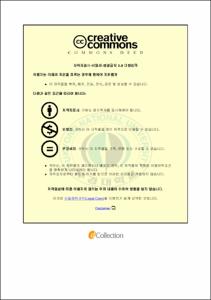‘지다’구문의 영어번역문 유형 및 기능문법적 설명
- Abstract
- The purpose of this research is to find some specific types of English translations of Korean ‘cita’ constructions and to provide functional explanations for each type of them. It is a usual way to translate ‘cita’ constructions to English passives. However, it hasn't been proved how frequently that kind of translation happens and what cause this practice. In this paper, 98 Korean ‘cita’ constructions are analyzed from Shin Kyung-sook ’s (2008) Please Look After My Mom and their English version. The Korean ‘cita’ constructions are shown to be translated into adjectives (48%), transitives (29%), and intransitives (23%). This study accounts for the subtypes in terms of functional concepts such as topicality, agentitivity, and lexicalization.
- Issued Date
- 2015
- Awarded Date
- 2015. 2
- Type
- Dissertation
- Publisher
- 부경대학교
- Affiliation
- 부경대학교
- Department
- 교육대학원 영어교육전공
- Advisor
- 김은일
- Table Of Contents
- 목 차
제 1장 서론 ……………………………………………………1
제 2장 이론적 배경 …………………………………………5
제 3장 번역구문의 유형 및 기능 문법적 설명 …………8
3.1 타동사+지다 구문 ………………………………………………8
3.1.1. 수동문으로 번역되는 경우 ……………………………………8
3.1.2. 타동사로 번역되는 경우 …………………………………………11
3.1.3. 자동사로 번역되는 경우 …………………………………………13
3.1.4. 양태동사로 번역되는 경우 …………………………………………15
3.2 자동사+지다 구문 ………………………………………………16
3.2.1. 수동문으로 번역되는 경우 ……………………………………16
3.2.2. 자동사로 번역되는 경우 …………………………………………17
3.3 형용사+지다 구문 ………………………………………………19
3.3.1. 수동문으로 번역되는 경우 ……………………………………19
3.3.2. 타동사로 번역되는 경우 …………………………………………20
3.3.3. 자동사로 번역되는 경우 …………………………………………21
3.3.4. 계사동사로 번역되는 경우 …………………………………………22
제 4장 결론 ……………………………………………………30
병렬 언어 자료 ………………………………………………32
참고문헌 ……………………………………………………………………………33
- Degree
- Master
- Files in This Item:
-
-
Download
 ‘지다’구문의 영어번역문 유형 및 기능문법적 설명.pdf
기타 데이터 / 642.45 kB / Adobe PDF
‘지다’구문의 영어번역문 유형 및 기능문법적 설명.pdf
기타 데이터 / 642.45 kB / Adobe PDF
-
Items in Repository are protected by copyright, with all rights reserved, unless otherwise indicated.